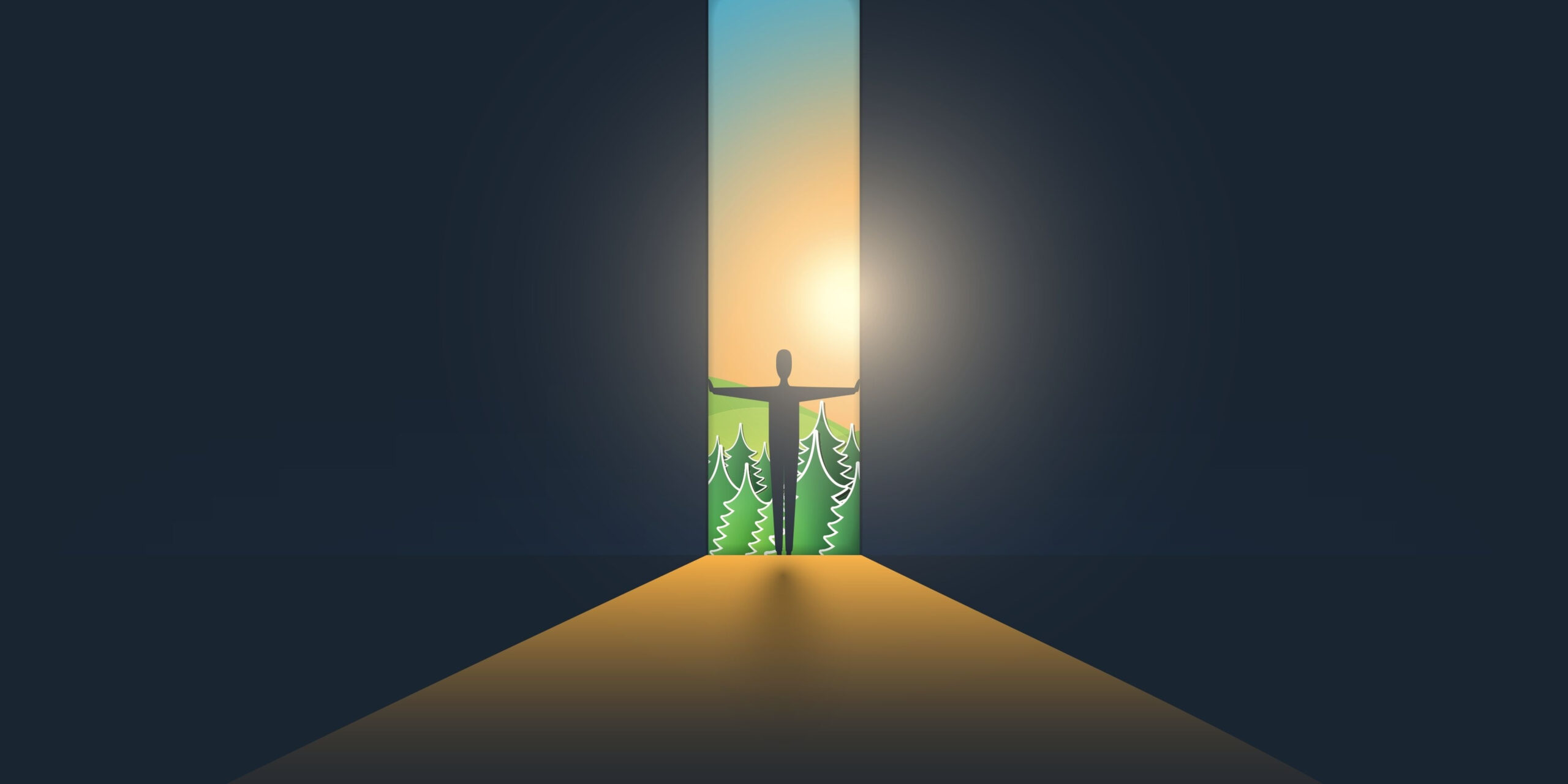How childhood trauma affects your subconscious and shapes your life
What happens to the subconscious:
As adults, we would like to live our lives with freedom and the autonomy to make our own choices. However even though we may have physically outgrown our younger selves, the emotional imprints, and protective mechanisms to deal with vulnerability and trauma experienced in childhood persists in our subconscious.
These patterns act like a shadow subtly directing our thoughts, behaviours, and decision-making processes which tend to hinder our growth, and inhibit our ability to embrace new experiences.
The shadow of our past can manifest as self-doubt, fear of rejection, or an inclination to avoid vulnerability altogether. It may whisper cautionary tales, reminding us of previous hardships and urging us to remain within the confines of our comfort zones where we can feel very stuck. Here are some examples:
I am unworthy…
One such belief that many adults carry is the feeling of being unworthy of love and acceptance. If you experienced neglect, emotional abuse, or inconsistent parenting as a child, you may have internalized a deep-rooted belief that you are undeserving of love. This belief can manifest in various ways as an adult. You might struggle with low self-esteem, constantly seeking validation and approval from others to fill the void within. Forming healthy and fulfilling relationships can be challenging because you question your own worthiness of love and often feel insecure and fearful of rejection.
I need to be in control…
Another common belief that stems from childhood trauma is the need to always be in control. Growing up in chaotic or unpredictable environments can lead to a subconscious belief that being in control is necessary for your safety and well-being. As an adult, this can manifest as perfectionism, always striving to have a tight grip on every aspect of your life. You may find it difficult to trust others or delegate tasks, fearing that things will go wrong if you’re not in control. Uncertain situations and unexpected changes can trigger high levels of anxiety and stress, leaving you exhausted from the constant need to manage everything yourself.
There must be something wrong with me…
Feeling fundamentally flawed is another belief that can arise from childhood trauma, particularly if you endured physical or emotional abuse. As a child, you may have internalized the belief that something is inherently wrong with you. This belief can persist into adulthood, leading to self-sabotaging behaviors and a profound sense of shame. You may find it hard to accept yourself as you are, constantly striving for perfection or seeking external validation to prove your worth. It can be challenging to set and achieve goals because deep down, you may believe that you are not deserving of success or happiness.
I need to protect myself…
Trust issues can also emerge as a result of childhood trauma. If you experienced betrayal, abandonment, or repeated breaches of trust, it’s natural to develop a belief that others cannot be trusted. As an adult, this can make it difficult to form close and intimate relationships. You may struggle with vulnerability, always anticipating being hurt or let down. Your interactions with others might be guarded and defensive, as you try to protect yourself from potential harm. This fear of being hurt can lead to a cycle of self-isolation and loneliness, as you distance yourself from others to avoid potential pain.
I am invisible…
Additionally, the belief that you must always please others can be a common consequence of childhood trauma. If your needs were consistently overlooked or invalidated, you may have learned to prioritize others’ needs above your own. As an adult, setting boundaries can be challenging, and you may find yourself constantly pleasing others at the expense of your own well-being. Chronic people-pleasing behavior can leave you feeling exhausted and disconnected from your own desires, opinions, and preferences. It’s as if you’ve become invisible, forgetting to prioritize your own needs and losing touch with your authentic self.
I need to fix things…
Lastly, the belief that you are responsible for everything can emerge from growing up in environments marked by substance abuse, mental illness, or domestic violence. As a child, you may have shouldered a burden of responsibility that was far beyond your years. This can lead to a subconscious belief that you are responsible for fixing or controlling everything in your life, even when it’s not within your control. As an adult, you may find it difficult to ask for help or seek support, feeling an overwhelming sense of responsibility for solving problems. Your relationships may become codependent, as you take on others’ burdens and neglect your own needs and well-being.
It’s important to remember that these beliefs are not a reflection of your true worth or potential. They are distorted perceptions formed during vulnerable times in your life.
Recognizing and understanding our shadow is crucial for personal development and self-awareness. By acknowledging its presence, we can begin to separate our past experiences from our present reality. We can dismantle the protective barriers that no longer serve us and detach from our past. When we consciously rewrite old narratives we are stepping into our inner power so that we can become architects of our own lives, consciously shaping our choices and embracing the vulnerability that accompanies true adulthood rather than fearing it.
How Psych-K accelerates healing
Psych-K provides a gentle, safe, and powerful framework to support you in the pivotal process of identifying and transforming subconscious beliefs, releasing trauma, healing emotional wounds, and experiencing positive and empowering change. It draws on principles from neuroscience, psychology, and ancient wisdom traditions, and through specialized energetic balances, it transforms these negative subconscious beliefs into positive, empowering ones.
When you have strong core subconscious beliefs that foster a sense of safety, trust, self-compassion, self-acceptance, and self-love within yourself you are able to tap into your inner power, resilience, and strength which means you can live how you want to live, instead of the shadow of your past telling you how to live.
Remember, you are not alone on this journey. Book now for a free 15-minute consultation
Emma Middleweek

More Articles
Manage anxiety with changes to your subconscious
Introduction: Managing anxiety with Psych-K Anxiety can be a challenging and overwhelming experience that impacts various aspects of our lives, including work, relationships, and overall well-being. But when we learn how to manage anxiety using Psych-K it is possible...
Giving the gift of confidence to your child
Children and Psych-K. As a parent I know only too well how much we want our children to grow up confident and capable of achieving their dreams. However, many children at some time or another struggle with self-doubt and lack of confidence, which can hold them back...
Reprogram the subconscious and bring yourself into the present
A Psych-K balance is a process which creates balance between the left and right hemispheres in the brain. During Psych-K balances neuronal exchanges occur between the hemispheres, creating a whole brain state. When there is coherence between the two hemispheres a...
How PSYCH-K helps you have more Willpower
Psych-K puts us in touch with energy that is stuck in the past. Psych-K balances free this energy, so that it can be used to aid our determination and drive to be present, be creative, and move forward in life. The power of your Will. This is defined by your ability...
Psych-K private sessions – creating the opportunity to advance your personal growth
A Psych-K private session Gives you space to discover the fundamental fears that are causing negative patterns in your behaviour and thinking patterns. You are guided within the Psych-K private session to uncover these fears, and once discovered, be able to shed a...
What does it mean to be whole brained
Split brain research on ‘brain dominance theory’’ indicates that the two hemispheres in the brain specialise and preside over different functions. They process different kinds of information and deal with different kinds of problems. The left hemisphere is thinking,...
PSYCH-K – being present and whole brained
A Psych-K balance is a process which creates balance between the left and right hemispheres in the brain. During Psych-K balances neuronal exchanges occur between the hemispheres, creating a whole brain state. When there is coherence between the two hemispheres a...
How childhood experiences affect the whole brain state
We are born with the natural ability to be in a whole brain state, unfortunately it is all too easy to lose this balance during our childhood. The brain hemispheres go out of balance when a traumatic or negative experience triggers a dominance of one hemisphere over...
What is a PSYCH-K balance
A Psych-K balance is a process which creates balance between the left and right hemispheres in the brain. During Psych-K balances neuronal exchanges occur between the hemispheres, creating a whole brain state. When there is coherence between the two hemispheres a...
What does forgiving yourself actually mean?
A difficult childhood can shape our lives and personalities We all perceive things differently. If we perceived that we were hurt or misunderstood or humiliated in some way, then such an experience can trigger our ego and subconscious to need to protect ourselves. As...
